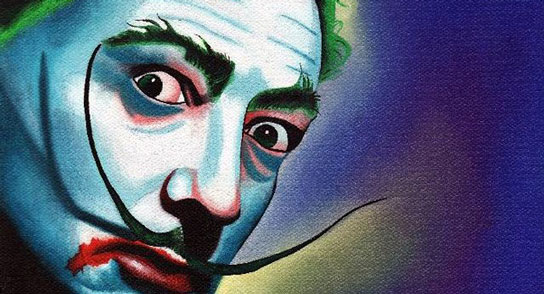
Beaten Path
4. By means of a finger (of my own)
to illustrate that the finger (of another) is not a finger
is not so good a plan as to illustrate that it is not so
by means of what is (acknowledged to be) not a finger;
and by means of (what I call) a horse
to illustrate that (what another calls) a horse is not so,
is not so good a plan as to illustrate that it is not a horse,
by means of what is (acknowledged to be) not a horse.
(All things in) heaven and earth may be (dealt with as) a finger;
(each of) their myriads may be (dealt with as) a horse.
Does a thing seem so to me?
(I say that) it is so.
Does it seem not so to me?
(I say that) it is not so.
A path is formed by (constant) treading on the ground.
A thing is called by its name
through the (constant) application of the name to it.
How is it so? It is so because it is so.
How is it not so? It is not so, because it is not so.
Everything has its inherent character and its proper capability.
There is nothing which has not these.
Therefore, this being so,
if we take a stalk of grain and a (large) pillar,
a loathsome (leper) and (a beauty like) Hs Shih,
things large and things insecure,
things crafty and things strange;
they may in the light of the Tao
all be reduced to
the same category (of opinion about them).
Zhuangzi, By Zhuang Zhou, trans. by James Legge, The Adjustment of Controversies
The story shows that the components of a manner of speaking are meaningful, due to 1) contrasts which differentiate, it is difference which lends definition, the term in gestalt psychology is “figure to ground”. Our perceptual mechanism separates the figure of our focus from the ground (the background.) Note the short list which Zhuang Zhou leaves for us. I’ve emphasized the contrast by green and orange shading.
2) Repeated use, constant drumbeat of a manner of speaking, tonality and vocabulary – results in the instantiation of meaning, like a tattoo image left in the dermis by a needle. Repetition suffices to convince of “truth”.
The upshot – opinion becomes settled, embedded, becoming culture as the consequence of repetition.
Nietzsche offers the same insight applied to morality. The writers sardonic tone is a response to the common assumption that a moral person surely is inordinately “good.” Moral sensibility derives from absorbing conventional values and behaviors very early, motivated by any number of emotional needs. My morals are like second hand clothes bought cheap, at Goodwill. By Nietzsche’s lights there’s nothing inherently moral about us.
97. One Becomes Moral—but not because one is moral! Submission
to morals may be due to slavishness or vanity, egoism or
resignation, dismal fanaticism or thoughtlessness. It may, again,
be an act of despair, such as submission to the authority of a
ruler; but there is nothing moral about it per se.
98. Alterations in Morals.—Morals are constantly undergoing
changes and transformations, occasioned by successful crimes.
(To these, for example, belong all innovations in moral
judgments.)
99. Wherein we are all irrational.—We still continue to draw
conclusions from judgments which we consider as false, or
doctrines in which we no longer believe,—through our feelings.
100. Awaking from a dream.—Noble and wise men once upon a
time believed in the music of the spheres; there are still noble and
wise men who believe in “the moral significance of existence,”
but there will come a day when this music of the spheres also
will no longer be audible to them. They will awake and perceive
that their ears have been dreaming.
101. Open to doubt.—To accept a belief simply because it
is customary implies that one is dishonest, cowardly, and
lazy.—Must dishonesty, cowardice, and laziness, therefore, be
the primary conditions of morality?
The Dawn Of Day by Friedrich Nietzsche, 1881, trans. J. M. Kennedy
P.S. Everyone following the beaten path, are we thereby beaten? Imagine an alternative !